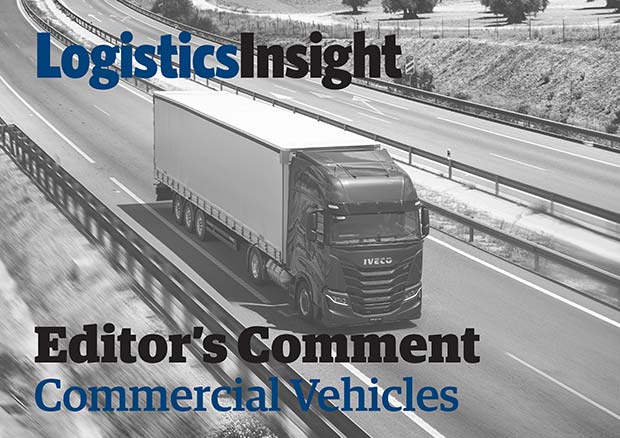It is crucial that the UK’s road network remains in the best possible condition in order for shoppers to receive all the goods they have ordered. The haulage industry has been admirable in meeting the challenges of Covid and Brexit. In future, it may have to respond to environmental concerns for vehicles to become greener.
This article was first published in the May 2021 issue of Logistics Insight, subscribe to the magazine by
clicking here.
 The logistics and supply chain industry has seen significant growth in recent years. It’s a £124bn industry and 2.54 million people now work in the sector, according to the Road Haulage Association. With vans now accounting for 10% of vehicles on the road, and an ageing population of HGV drivers, there are more opportunities for drivers and other logistics professionals from all backgrounds than ever before. From the logisticians overseeing the supply chain, right through to the drivers needed to manoeuvre commercial vehicles, there is a host of different avenues to explore, each providing opportunity for great progression.
The logistics and supply chain industry has seen significant growth in recent years. It’s a £124bn industry and 2.54 million people now work in the sector, according to the Road Haulage Association. With vans now accounting for 10% of vehicles on the road, and an ageing population of HGV drivers, there are more opportunities for drivers and other logistics professionals from all backgrounds than ever before. From the logisticians overseeing the supply chain, right through to the drivers needed to manoeuvre commercial vehicles, there is a host of different avenues to explore, each providing opportunity for great progression.
A study reveals that UK hauliers are seeing varying impacts after the Brexit transition period ended on 1st January, including jobs created, redundancies and 6% stating they’re no longer working with EU-based companies. Specialist UK haulage loads platform, Haulage Exchange, asked employees from 32 UK-based haulage companies for their insights on how Brexit has affected, and will affect, their business, as well as what they need in order to adapt to the changes. There are a number of UK haulage companies that have seen positive impacts from the Brexit changes – 15% of haulage companies have seen an increase in demand.
Employment opportunities have also been created, with 9% of UK haulage companies increasing employee numbers.
Logistics UK has been encouraged to see that the ONS figures for February 2021 show an improvement to the volume of goods moved between the UK and EU. “We expect this trend will continue as many of the factors which may have caused friction to trade in recent months, including COVID-19 restrictions, stockpiling, and challenges with the implementation of new post-Brexit trade processes, continue to dissipate,” comments Alex Veitch, Logistics UK’s General Manager of Public Policy. “Now, Logistics UK is urging government and industry to ensure the entire supply chain is ready for the introduction of further EU-UK border controls from 1 January 2022 to keep trade moving as smoothly as possible in the coming months and years.”
This month’s release of Light Commercial Vehicle registrations show the industry stepping forward – albeit with many unknowns ahead. Q1 2021 saw LCV registrations rise 43% compared to the same period last year just before the pandemic hit, with most of the growth concentrated in the heavy van sector; consistent with the long-term trend. Although the market is still behind where the industry expected to be, it is still a big step in the right direction, says the Society of Motor Manufacturers and Traders (SMMT).
It is encouraging to witness the industry moving forward in a positive way despite all the challenges.




Comments are closed.